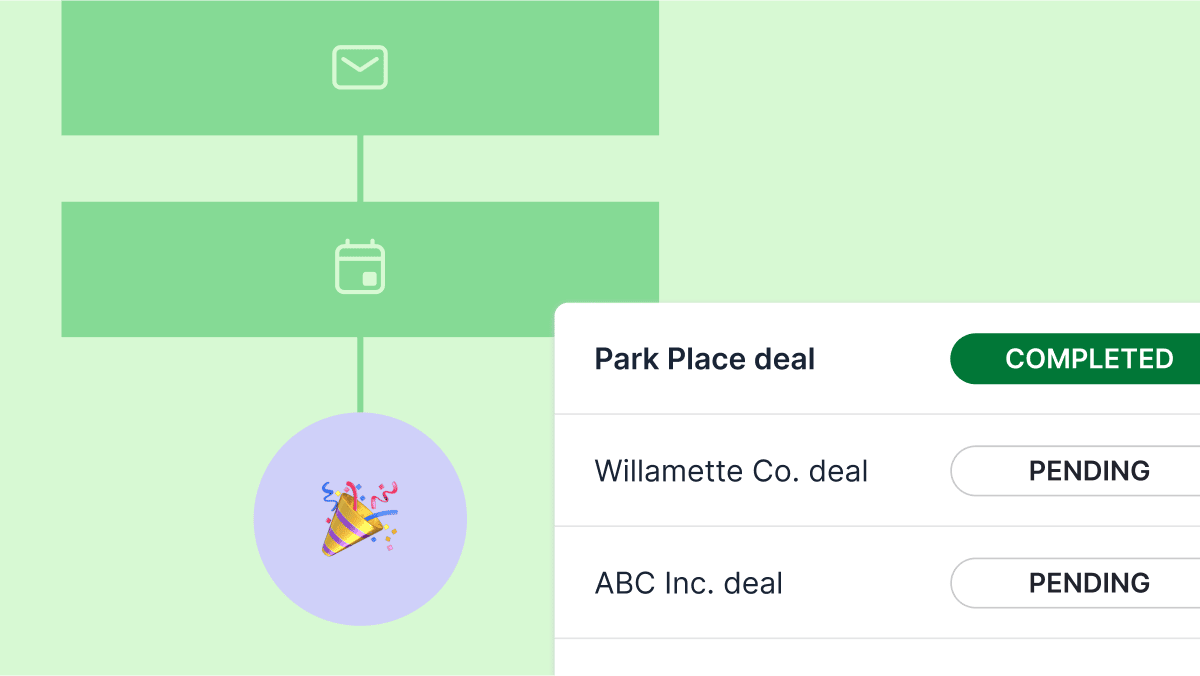The demand for cybersecurity sales professionals has skyrocketed in the last decades. As businesses prioritize protecting their data and systems, pursuing a career in this field can be lucrative and impactful.
In this article, we explore how to break into cybersecurity sales – whether you’re new to sales or looking to transition from a different field – and offer actionable strategies to help you succeed.
What are cybersecurity sales?
Cybersecurity sales involve selling products and services designed to protect digital assets and information systems from cyber threats and unauthorized access. Salespeople in this field combine technical knowledge with sales expertise to understand customer needs and offer solutions that safeguard against potential security breaches.
They play a critical role in educating clients on the value of cybersecurity measures, tailoring protection strategies and ensuring that businesses and individuals have the proper defenses in place to secure their data against cyber attacks.
Understand the cybersecurity landscape
The cybersecurity landscape rapidly evolves due to advancing technology and increasingly sophisticated cyber threats.
As businesses digitize, they become more efficient but also vulnerable, requiring strong cybersecurity measures. A solid understanding of this field involves knowing various cyber attacks – like ransomware, phishing and DDoS – and staying informed on trends such as cloud security and zero-trust architectures.
It’s also crucial to keep up with industry standards and regulations, such as GDPR in the European Union and CCPA in the United States of America.
Knowledge of the most sought-after cybersecurity skills, like incident response and network security, is crucial for professionals aiming to stay competitive in this field.
It is equally essential to recognize the various cybersecurity roles, from ethical hackers and security analysts to chief information security officers, which shape the industry’s job market landscape.
Note: As reported by MarketsandMarkets, the cybersecurity market is expected to grow from $217.9 billion in 2021 to $345.4 billion by 2026.
Identify your target role in cybersecurity sales
When starting a career in cybersecurity sales, it’s crucial to identify a sales role that aligns with your skills and career goals.
The cybersecurity field offers a variety of positions that cater to different strengths, from technical expertise to relationship-building.
If you have deep technical knowledge, roles like Sales Engineer or Solutions Architect might be ideal, as they require a strong understanding of cybersecurity products and services.
For those who excel in customer interaction, positions like Account Manager or Business Development focus on cultivating relationships and require excellent communication skills.
If you’re more strategic, a role like Sales Analyst, which involves analyzing market trends, might suit you best.
Choosing the proper role is about matching your strengths and interests with the demands of the position. Success in cybersecurity sales depends on balancing technical knowledge with the ability to connect with clients and sell effective solutions.
Build a foundational knowledge of cybersecurity concepts
Building a foundational knowledge of cybersecurity concepts is essential for anyone interested in the field, whether for work or personal benefit.
To establish this groundwork, you should start by understanding the nature of cyber threats and the importance of network security. Here are key steps to build that foundation:
Learn the basics. Know the difference between viruses, malware, ransomware and phishing. Familiarize yourself with how firewalls, antivirus software and encryption work to protect digital assets.
Online courses. Leverage free or paid online courses that cover the basics of cybersecurity principles and best practices.
Read and research. Stay updated with the latest security news and delve into articles and reports about recent cyber incidents and emerging threats.
Practice safe browsing. Apply security measures in your day-to-day internet use, such as secure passwords, two-factor authentication and avoiding suspicious links.
Use educational resources. Libraries and educational platforms offer ebooks and guides that can deepen your understanding of cybersecurity.
This foundational knowledge not only empowers individuals to protect their information but also serves as a stepping stone for a career in the cybersecurity industry.
Obtain relevant certifications for credibility
Gaining credibility in cybersecurity starts with obtaining relevant certifications. These certifications validate your skills and demonstrate your commitment to staying updated in the ever-evolving cyber landscape.
To start, it’s important to identify certifications that align with your career goals. For example, the Certified Information Systems Security Professional (CISSP) and Certified Ethical Hacker (CEH) are highly regarded in the industry.
Preparing for these exams through online or in-person courses will help solidify your understanding of the material. Once you pass the certification exams, you’ll have proven your technical competency, a significant milestone in your career.
However, maintaining your certification is just as crucial. Continuing education ensures that you stay updated with the latest trends and technologies in cybersecurity.
The benefits of obtaining certifications are substantial: they demonstrate your expertise, improve your employability and enhance your potential for career advancement.
Certifications also build trust with clients and employers, expand your professional network through certified communities, and can even lead to higher earning potential, positioning you as a valuable asset in the industry.
Gain sales experience through internships or entry-level positions
Gaining sales experience is a stepping stone to many career paths, including cybersecurity sales. One effective way to start is through internships or entry-level positions.
Internships provide a hands-on opportunity to understand the sales process and customer interaction. They can be found across various industries and offer a broad understanding of sales strategies and business operations. Interns get a peek into managing customer relations, understanding their needs and proposing solutions.
Entry-level sales positions, such as Sales Development Representatives (SDRs) or Junior Sales Associates, allow new professionals to hone their skills. These roles typically involve:
Cold calling and emailing
Product demonstrations
Customer follow-ups
Handling basic client queries
Both internships and entry-level jobs offer practical experience essential for advancing to more specialized fields, like cybersecurity sales. These positions lay a strong foundation in communication, persuasion and negotiation – transferable skills across many sales careers.
Seizing these opportunities is crucial, as they build your resume and provide valuable industry connections that can open doors to future opportunities in the cybersecurity domain.
Develop a strong personal brand focusing on your sales skills
The job market has never been more competitive. Developing a strong personal brand focused on your sales skills is crucial, as it sets you apart and highlights your unique value.
To effectively showcase your sales skills, it’s important to maintain a strong online presence.
Keeping your LinkedIn profile up to date with your latest sales achievements and certifications showcases your expertise and keeps your professional network informed of your ongoing progress.
By engaging with sales-related content, such as sharing insightful commentary, you can demonstrate your thought leadership and build credibility among peers and potential employers.
Additionally, writing articles or blog posts that explore your sales strategies and experiences allows you to further solidify your reputation as an expert, offering valuable insights that resonate with a broader audience.
Your personal brand should reflect your ability to communicate effectively, understand customer needs and deliver results.
Sales skills like negotiation, customer relationship management (CRM) and strategic planning should be at the forefront of your branding efforts. A well-crafted personal brand can be the key to unlocking new opportunities and establishing yourself as a sales professional.
Note: A survey by LiveCareer found that 68% of recruiters believe job seekers need a LinkedIn profile, while 65% of hiring managers were open to being contacted by potential candidates on the platform.
Transition from non-technical backgrounds: strategies for success
Transitioning from a non-technical background into a role in cybersecurity sales can be rewarding with the right strategies.
First, immerse yourself in cybersecurity through online courses, blogs and news to build foundational knowledge.
Secondly, start networking. Connect with industry professionals via online communities and industry events. Gain relevant certifications like the Certified Information Systems Security Professional (CISSP) to enhance credibility.
Next, develop a clear understanding of common cyber threats and the importance of network security to safeguard digital assets. Hands-on experience with cybersecurity tools through practical exercises or simulations will significantly enhance your communication with clients.
Lastly, leverage your transferable skills, such as problem-solving and customer relations from your previous experience, which are crucial in sales roles. Sales experience and technical knowledge make for a formidable cybersecurity sales professional.
Strategy | Action steps |
| Foundation building | Complete online courses, follow blogs and stay updated with the latest news. |
| Networking | Engage with online communities and attend industry events. |
| Certification | Acquire certifications (e.g., CISSP). |
| Understanding cybersecurity | Learn about cyber threats and network security. |
| Hands-on experience | Use cybersecurity tools and engage in practical exercises or simulations. |
| Utilize transferable skills | Apply previous problem-solving and client relation skills to cybersecurity sales roles. |
Using these strategies helps ensure a successful transition into cybersecurity sales, even from a non-technical background.
Pipedrive: the best tool for breaking into cybersecurity sales
Breaking into cybersecurity sales is an ambitious goal, and Pipedrive is the perfect tool to help you achieve it.
This CRM software simplifies complex sales processes, empowering you to focus on closing deals in a demanding industry. Pipedrive’s customization options empower you to tailor your pipeline to the specific demands of cybersecurity sales, ensuring that your process aligns perfectly with the complexities of this field.
By automating routine tasks, Pipedrive frees up more of your time to focus on building relationships and driving sales. Alongside automation, the platform offers comprehensive insights and reporting tools, enabling you to measure performance and identify areas for improvement – critical in an industry where precision is key.
To further enhance your efficiency, Pipedrive’s communication tracking keeps all your calls, emails and contact history organized in one place, facilitating seamless interactions.
In an industry where security is paramount, Pipedrive’s robust measures ensure your data is protected, adhering to the highest standards of trust and transparency. Moreover, the platform’s custom pipelines and lead management features streamline your sales efforts, while integrated email integration and activity reminders help you stay on track and organized.
Pipedrive offers a strategic edge in cybersecurity, combining advanced technology with sales expertise to drive results.
Final thoughts
Succeeding in cybersecurity sales requires a strong knowledge base and tools like Pipedrive to manage leads and customer interactions effectively. It’s not just about technical expertise, you must also convey the value of these services to clients.
Pipedrive helps streamline this process, enabling you to focus on crafting tailored security solutions. Whether you’re new or transitioning into cybersecurity sales, building relevant knowledge, networking and using advanced tools like Pipedrive is key.
With Pipedrive as your partner, you can track progress, refine strategies and build lasting client relationships, paving the way for success.







